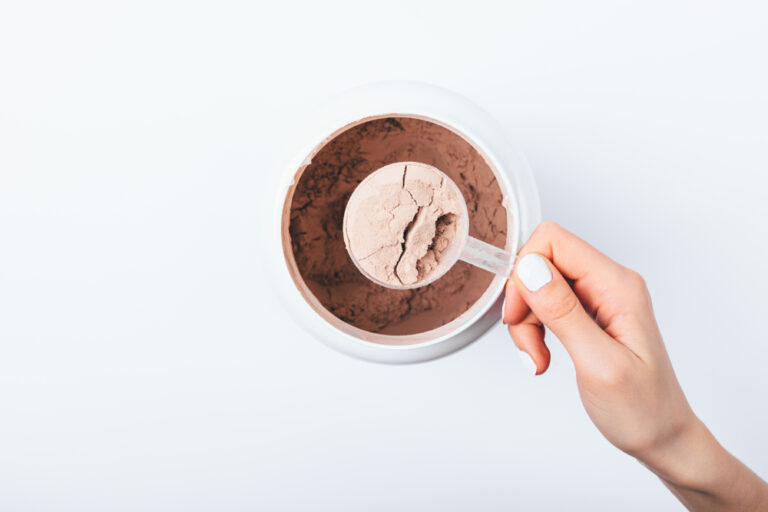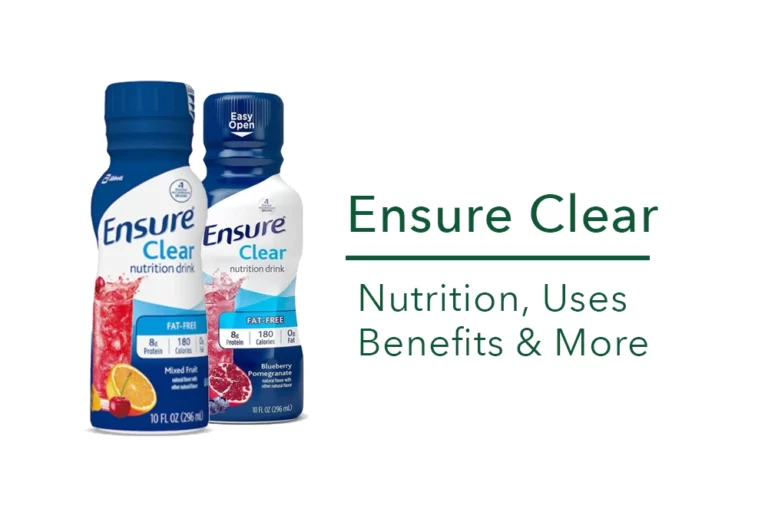Creatine vs. Creatinine: The Key Differences
We include links to products that we think our readers will find useful. If you buy through links on this page, we may earn a small commission. Learn about our process.
Creatine is a popular sports supplement used by athletes, bodybuilders, and the like to increase muscle size and strength.
However, many medical professionals like doctors advise against the use of creatine, claiming that it increases creatinine levels and harms the kidneys.
Doctors commonly use creatinine to assess kidney function.
Though some forms of creatine can increase creatinine levels, it doesn’t necessarily indicate kidney damage, as some may lead you to believe.
This article explains the relationship between creatine supplementation and elevated creatinine levels and whether creatine harms the kidneys.

Creatine vs. creatinine
Here are the differences between creatine and creatinine:
Creatine
Creatine is a compound produced naturally by the kidneys and liver.
It’s also found naturally in animal foods, namely meats and fish.
Creatine — whether produced by your body or obtained through the diet — is stored primarily in skeletal muscle where it fuels muscle cells.
Supplementing with creatine provides more fuel to power muscle cells, allowing you to perform more repetitions, lift heavier weights, and tire less easily.
This is why creatine supplements are popular among athletes and bodybuilders.
The body breaks downs a small percentage of creatine into creatinine — which the kidneys then excrete in urine — as a normal part of muscle metabolism.
This breakdown of creatine into creatinine occurs continuously, so you must replenish your creatine stores on a daily basis, which you can do by eating adequate amounts of protein (1).
Creatinine
Creatinine is the most widely used marker to assess kidney function, mostly because it’s cheap and easy to perform (2).
Medical professionals use creatinine as one of the main criteria to diagnose acute kidney injury and assess the progression of chronic kidney disease.
This is because the kidneys cannot excrete creatinine as well when they’re damaged, causing levels to rise.
Creatinine can be tested in urine, but it’s most commonly tested in blood.
In general, a normal level of serum or blood creatinine is (3):
- 0.6–1.2 mg/dL for males
- 0.5–1.1 mg/dL for females
Serum creatinine is used to form an estimate of the rate of glomerular filtration (eGFR), a measure of how well your kidneys filter blood.
The skeletal muscles are the primary source of creatinine in humans since the breakdown of creatine into creatinine occurs in the muscles.
Summary
Creatine is a compound produced naturally by the body and found in animal foods. It’s stored primarily in skeletal muscles where some of it is broken down into creatinine. Creatinine is the most widely used marker to assess kidney function.
Creatine doesn’t increase creatinine levels
Creatine supplements have long been linked with kidney damage.
This is in part because the byproduct of creatine breakdown is creatinine — which when elevated may indicate kidney damage.
But, there’s no evidence to suggest that creatine supplementation significantly affects creatinine levels in healthy people (4).
This is because creatine monohydrate — the most well-studied and cost-effective form — is nearly 100% absorbed by the body, leaving little to no creatine available to be broken down into creatinine (5).
The only reports of elevated creatine levels from creatine supplementation stem from a form of creatine called creatine ethyl ester (6, 7).
But this is because, unlike creatine monohydrate, creatine ethyl ester is poorly absorbed and quickly broken down into creatinine.
In fact, structurally, creatine ethyl ester is not actually creatine but a chemical alteration of creatine (5).
Consequently, supplementing with creatine ethyl ester is unlikely to improve exercise performance, support healthy aging, improve depressive symptoms, or offer other creatine-related benefits (8).
Fortunately, creatine ethyl ester isn’t as widely available as it once was.
The body can likely absorb other forms of creatine like HCl as well as — but not better than — creatine monohydrate.
Learn about the differences between creatine monohydrate and HCL here.
Summary
Creatine — specifically creatine monohydrate — is not broken down into creatinine before it has a chance to be absorbed so supplementing it won’t increase serum creatinine significantly.
Non-creatine factors that increase creatinine
Although creatinine can be used to assess kidney function, it’s not a specific marker since many factors influence it (2).
Recall the body stores most creatine in skeletal muscles and breaks down a small percentage of it into creatinine each day.
This percentage is proportional to the amount of muscle mass you carry — the more muscular you are, the higher your creatinine level and the more you excrete (2).
To this point, in people with normal kidney function, creatinine levels can be used to estimate muscle mass.
Following a diet rich in animal protein can also raise serum creatinine.
For example, the creatine in animal products like beef is converted into creatinine after cooking, elevating serum creatinine (2).
Other factors can also increase serum creatinine independent of kidney function.
For example, certain medications such as aspirin and corticosteroids as well as drugs used to treat HIV/AIDS and cancer compete with creatinine for kidney excretion, resulting in falsely elevated serum creatinine (9).
Unfortunately, some medical professionals continue to assume that elevated serum creatinine suggests kidney damage rather than that the body may be producing excess creatinine, which in and of itself is not harmful.
Summary
Being more muscular, following a high-protein diet, and taking certain medications can increase serum creatinine in the absence of kidney disease.
Is creatine safe?
More than three decades of research have demonstrated no negative health effects of creatine supplementation on kidney health or other aspects of health (10).
While there is limited data on the safety of creatine in people with kidney disease, it has been used safely by people with one kidney and by people with diabetes, a leading cause of kidney disease (11, 12).
Even teens who are involved in sports as well as older adults can safely supplement creatine (10).
The only consistent side effect associated with creatine supplementation is weight gain due to water retention. This is because creatine pulls water into the muscle cells.
However, this water retention is short-lived — usually occurring during the first several days of supplementation — and not everyone experiences it.
The most common way to supplement creatine is by taking 20–25 grams (divided into four to five, 5-gram servings) daily for 5–7 days and then 3–5 grams daily thereafter.
Alternatively, you can skip the first phase — known as creatine “loading” — and supplement with 3–5 grams daily.
Both ways are equally effective but following the former strategy allows you to experience creatine’s benefits 3–4 times faster.
Among the various form of creatine, the most well-studied and cost-effective form is creatine monohydrate (1).
You can purchase creatine monohydrate alone in a powder or pill form or alongside other ingredients like in a pre-workout or protein powder.
Look for products that contain creatine monohydrate as Creapure or PharmaPure. These are two brands that produce pure and contaminant-free creatine.
Here are two brands that provide these forms:
These two products are also vegan-friendly.
Other sources of creatine monohydrate — particularly from China — may be contaminated with harmful chemicals and heavy metals like mercury (5).
You can mix creatine with water or juice, or add it to your protein shake.
Summary
Creatine is safe for almost everyone, from teens to older adults. There is no evidence to suggest creatine is harmful to the kidneys, even in people with conditions known to cause kidney disease like diabetes. Creatine monohydrate is the most well-studied and cost-effective form.
The bottom line
Creatine is a compound naturally produced by the kidneys and liver. You can also get creatine from your diet through foods like beef and seafood.
Creatinine is the waste product of creatine that is formed in skeletal muscles for normal muscle metabolism.
Creatine is commonly believed to raise serum creatinine — a commonly used marker of kidney damage — leading to the belief that creatine is harmful to the kidneys.
However, creatine is not broken down into creatinine before it has a chance to be absorbed so supplementing it won’t increase serum creatinine significantly.
Even then, creatinine alone is not a reliable indicator of kidney health since other factors related to muscle mass, a high-protein diet, and certain medications can increase serum creatinine in people with healthy kidneys.
In either case, decades of research and thousands of studies have proven the safety of creatine for almost everyone, from teens to older adults.
And there is no evidence to suggest creatine is harmful to the kidneys when supplemented appropriately.






